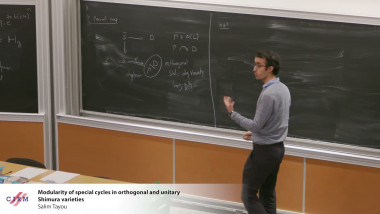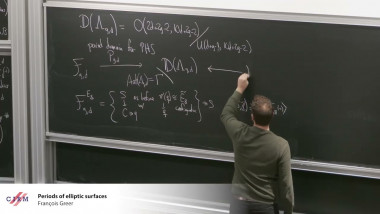A statistical physics approach to the sine beta process
De Mylène Maïda
The universality properties of the Sine process (corresponding to inverse temperature beta equal to 2) are now well known. More generally, a family of point processes have been introduced by Valko and Virag and shown to be the bulk limit of Gaussian beta ensembles, for any positive beta. They are defined through a one-parameter family of SDEs coupled by a two-dimensional Brownian motion (or more recently as the spectrum of a random operator). Through these descriptions, some properties have been derived by Holcomb, Paquette, Valko, Virag and others but there is still much to understand. In a work with David Dereudre, Adrien Hardy (Université de Lille) and Thomas Leblé (Courant Institute, New York), we use tools from classical statistical mechanics based on DLR equations to give a completely different description of the Sine beta process and derive some properties, such as rigidity and tolerance.
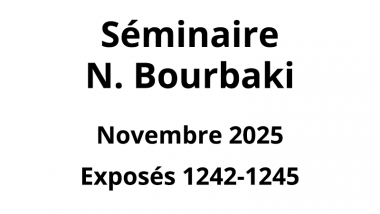










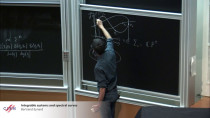
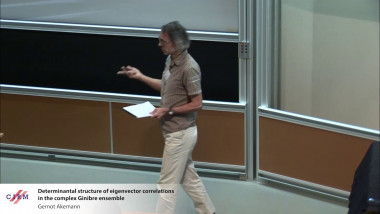
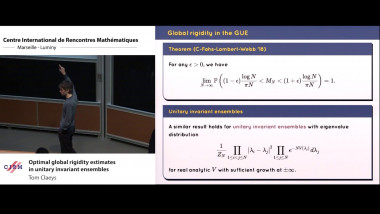
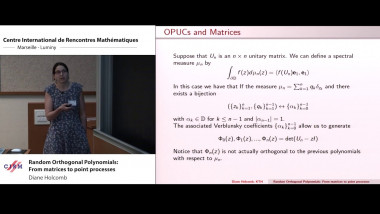
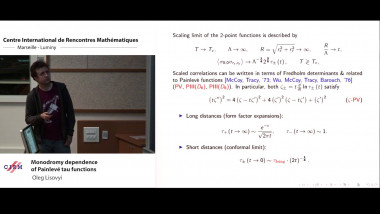
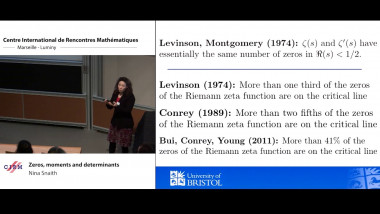
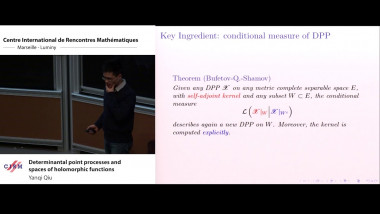
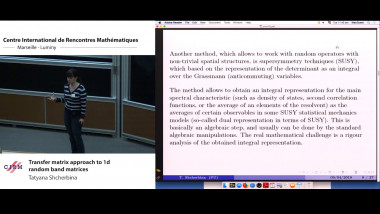
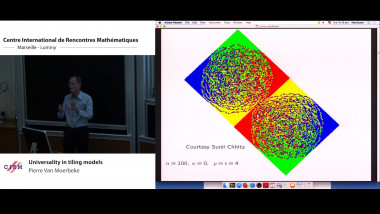
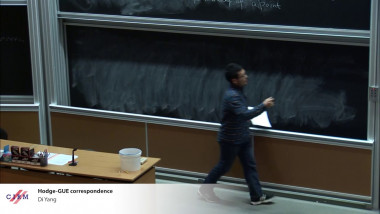
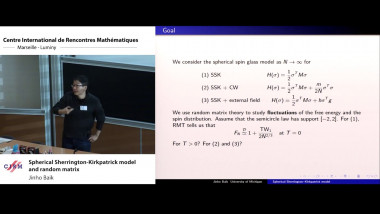
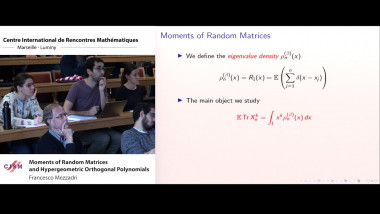
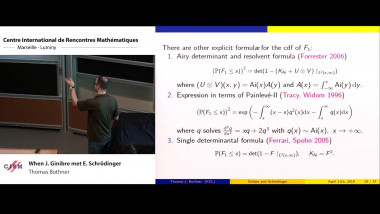
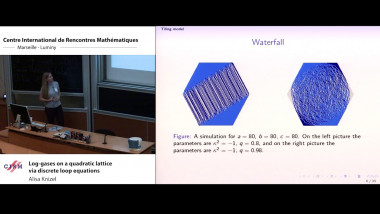
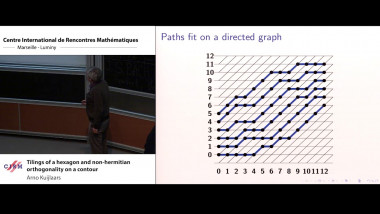
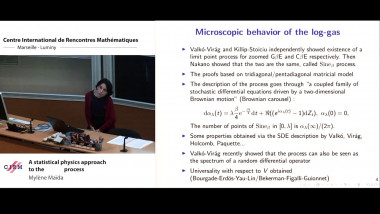
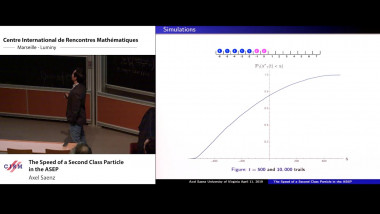
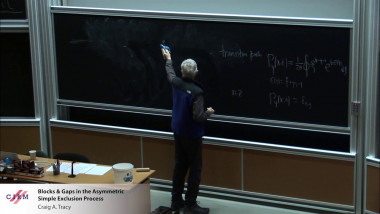
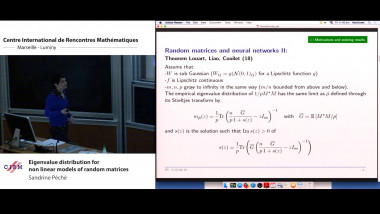


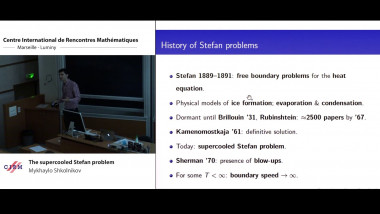
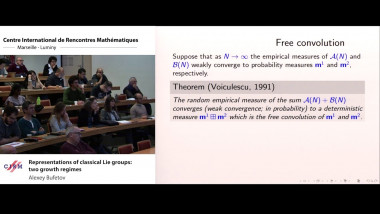
![[1243] Degrés dynamiques](/media/cache/video_light/uploads/video/SeminaireBourbaki.jpg)

